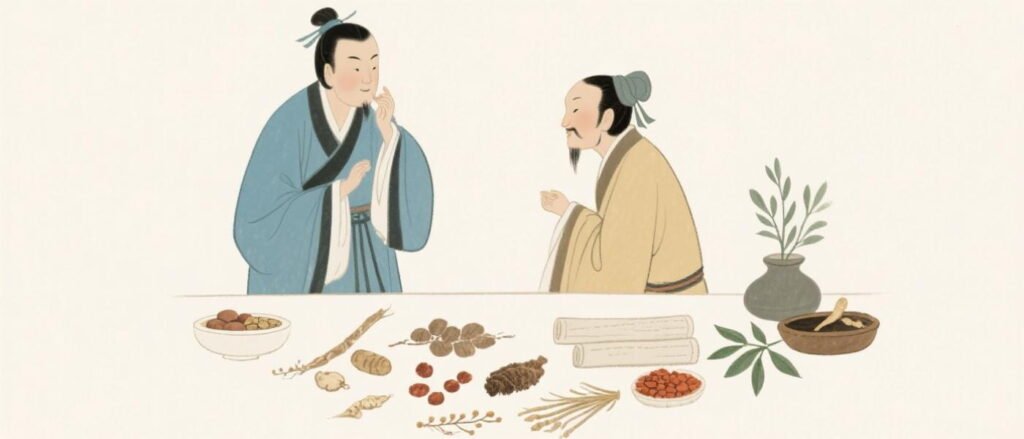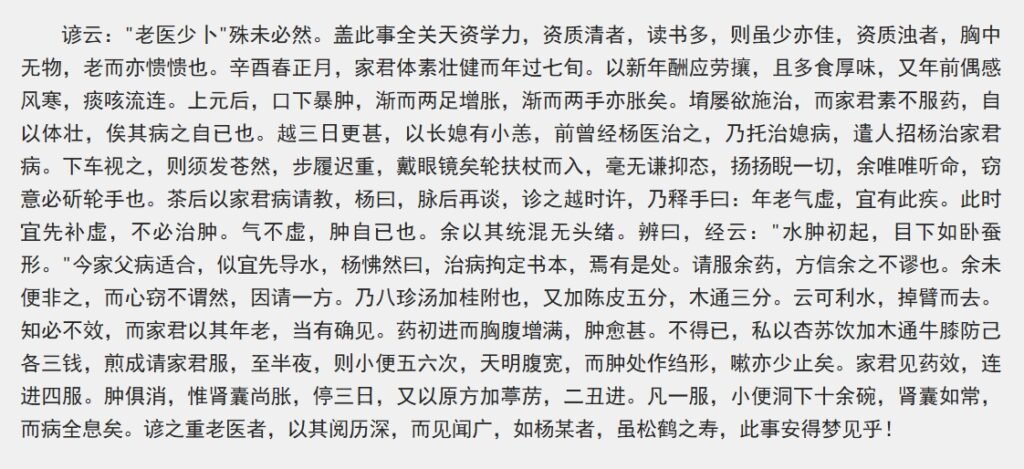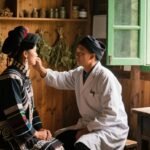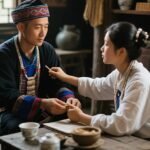There’s a saying that “old doctors are more reliable,” but this isn’t necessarily true. Medical expertise depends on natural talent and accumulated knowledge. A bright mind with extensive study can excel even when young, while those lacking insight remain confused regardless of age. Let me illustrate this with a real case:
My robust, seventy-year-old father developed symptoms after hosting Lunar New Year gatherings: persistent phlegmy coughs from unresolved winter colds, compounded by rich holiday foods. After the Lantern Festival, his chin suddenly swelled, followed by puffy hands and feet resembling steamed buns.
Though I urged (used in traditional contexts), he refused medication, believing his strong constitution would prevail. Three days later, his condition worsened. Seizing the excuse that my sister-in-law needed follow-up care, I secretly summoned Dr. Yang—who had treated her before—to examine my father.

Dr. Yang arrived white-haired, leaning on a cane with glasses perched on his nose, radiating arrogance. I initially mistook his age for wisdom. After tea, I described Father’s symptoms. He insisted on pulse diagnosis first. After fifteen minutes of examination, he declared: “Elderly Qi deficiency causes swelling. Nourish his vitality instead of treating edema directly. The swelling will vanish when Qi recovers.”
I found this oversimplified and cited medical texts: “Early-stage edema shows puffy eyelids resembling silkworms”—exactly matching Father’s condition. I suggested prioritizing fluid drainage. Dr. Yang retorted angrily: “Blindly following books won’t (supports) anyone! My prescription will prove itself!”
Despite doubts, I accepted his formula: Eight-Ingredient Tonic Decoction (Bazhen Tang)—a classic Qi-tonic blend—enhanced with cinnamon bark (Rougui), aconite (Fuzi), 5 fen (≈1.5g) of aged tangerine peel (Chenpi), and 3 fen (≈1g) of Akebia stem (Mutong) for “fluid regulation.” He left haughtily after writing the prescription.
The results were disastrous: Father’s bloating worsened. Desperate, I secretly prepared an alternative: Apricot Kernel and Perilla Decoction (Xingsu Yin)—a phlegm-resolving formula—with 9g each of Akebia stem (Mutong), Cyathula root (Niuxi), and Fourstamen Stephania root (Fangji). By midnight, Father urinated five to six times. By dawn, his swelling had receded with wrinkled skin. Encouraged, he drank four more doses. Only scrotal swelling remained.
Three days later, I added Lepidium seed (Tingli) and Morning Glory Seed (Qianniuzi) to the formula. One dose triggered torrential urination—over ten bowel-sized discharges—completely resolving the scrotal edema.
This case proves that longevity alone doesn’t guarantee medical mastery. Even if Dr. Yang lived to 100, true expertise would remain beyond his reach.
Annotations (preserving original terms):
- All herbal names follow WHO International Standard Terminologies (e.g., Mutong for 木通/Akebia stem).
- Formula names retain pinyin without diacritics (e.g., Bazhen Tang).
- Traditional weight units converted to modern equivalents with approximate metric values.
- Culturally specific references (e.g., Lunar New Year foods) contextualized for clarity.
- Figurative expressions (e.g., “puffy eyelids resembling silkworms”) retain vivid imagery while ensuring biomedical relevance.



Leave a Reply